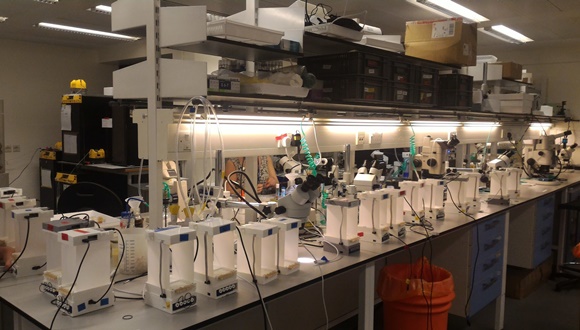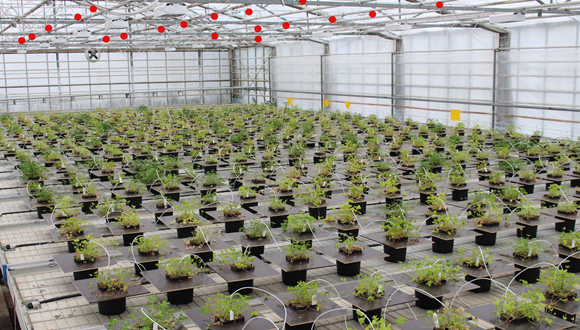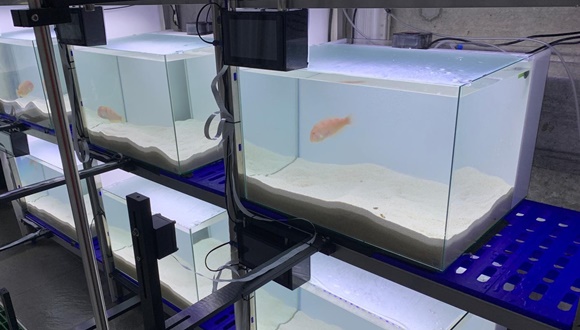Single-board computers like the Raspberry Pi are helping revolutionize biological research and democratize science
A new review study published in Methods in Ecology and Evolution shows that low-cost open-source electronics are increasingly being used in science and are a key technological advancement to revolutionize biological research.
Single-board computers like the Raspberry Pi have taken the world by storm and are being used by scientists and hobbyists in any situation imaginable. The new review study ‘Broad-scale Applications of the Raspberry Pi: A Review and Guide for Biologists’ published in the journal Methods in Ecology and Evolution by CREAF researcher Jolle Jolles shows that these low-cost open-source electronics are also increasingly being used in science and are a key technological advancement that will help further revolutionize biological research.
By reviewing the biological literature, Jolle Jolles –who holds a Severo Ochoa Postdoctoral position at CREAF, Barcelona– found over a hundred empirical studies across the biological domain that implemented the Raspberry Pi in some way. The paper shows biologists have been using these low-cost computers in huge variety of ways in both the lab, the field, and in the classroom, ranging from weather stations, automated bird feeders, closed-loop learning devices, and deep-sea recording systems, to environmental monitoring tools, and wild-life camera traps. "The Raspberry Pi opens the door for novel and creative solutions, which is key to scientific progress, and is helping advance our understanding of biology, from the micro to the macro scale”, says Jolles.
"The Raspberry Pi opens the door for novel and creative solutions, which is key to scientific progress, and is helping advance our understanding of biology, from the micro to the macro scale"
Raspberry Pi’s are put to use from relatively simple tasks, such as video recording and environmental monitoring, to highly dedicated solutions and devices, such as plant phenotyping systems and confocal microscopes, that provide a highly affordable alternative to expensive research equipment that researchers may not have budget for.
Push the boundaries of science
“Low-cost single-board computers empower scientists in countries or research institutes with limited research funding to develop their own research tools”, according to Jolle Jolles. Ultimately this will help accelerate the development of new methodologies and stimulate interdisciplinary research.

The study shows that Open Electronics like the Raspberry Pi can really play a key role in helping push the boundaries of science and thereby help advance our understanding of biology. However, the review also identifies that, despite its increasing uptake by the scientific community and the high diversity in applications, the Raspberry Pi is not the common research tool it could be. To help overcome this technology gap, the paper provides detailed recommendations, guidelines, and considerations, as well as a dedicated website with step-by-step tutorials, to help scientists and non-scientists alike to integrate the Raspberry Pi in their work.
In addition to its use in research, Jolles highlights the Raspberry Pi is also a great tool for teaching. This is particularly the case for the STEM fields, as by building their own devices, students learn the basics of electronics, programming, biology, and physics in a hands-on way. Furthermore, Raspberry Pi’s can be used specifically to teach about the scientific process, from designing experiments, building instruments, collecting and analyzing data, to interpreting results. And because of their high flexibility and large user community, single-board computers are a great tool for citizen science and scientific outreach and can thereby help bring science to the general public.

Single-board computers in science
Scientists are benefiting from a rapid rising industry of low-cost single-board computers, which is fuelled by the exponential growth in computer power and capabilities and the rise of the Internet of Things (IoT) in recent years. Built on open-source principles and driven by the non-profit incentive to increase global access to computing and digital making, the Raspberry Pi is by far the most popular single-board computer (over 37 million units sold since its release in 2012), and brings together external hardware, sensor, and controller interfaces, with user-friendly programming capabilities, high connectivity, and desktop functionality. It is particularly this single-board computer that has been taken up by the scientific community because of the large number of resources and online support available, and the huge variety of add-ons that exist.

Jolles has also been using Raspberry Pi’s widely in his own research, including automated recording systems for the behavioural phenotyping of hundreds of individuals and groups of fish and long-term monitoring of parental behaviour of wild bird populations across the breeding season
Reference:
The study Broad-scale Applications of the Raspberry Pi: A Review and Guide for Biologists by Jolle W. Jolles is published online on 24th of June 2021 in the journal Methods in Ecology and Evolution and is available Open Access: http://doi.org/10.1111/2041-210X.13652.







